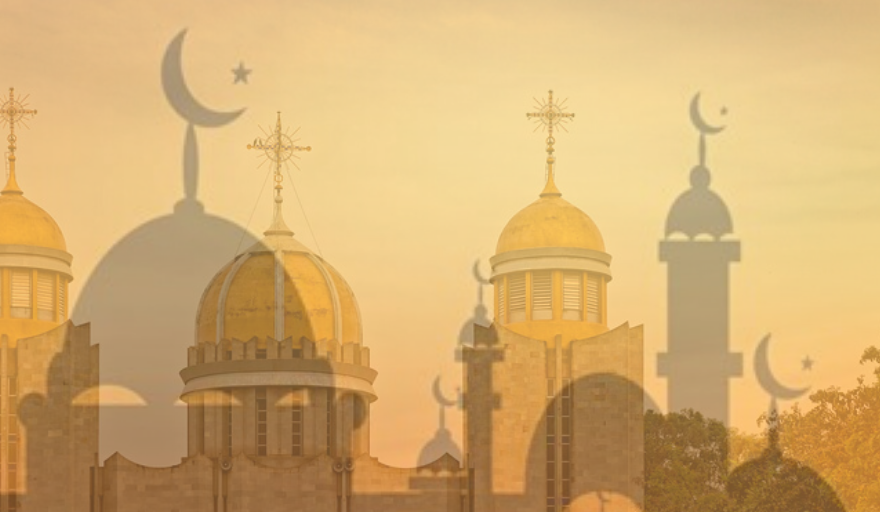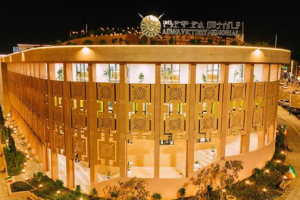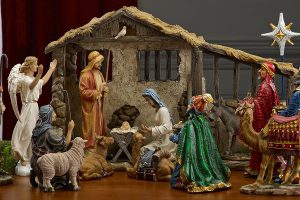
According to Wikipedia encyclopedia, Islam is the second largest religion in Ethiopia with more than 33 per cent of the population adhering to it. Ethiopia is the first country to accept Islam when it was not known in most parts of the world. Ethiopia also favored the expansion of Islam in the country allowing it to be present since the time of Muhammad in the 7th century.
In his book entitled “Islam In Ethiopia” J. Spencer Trimingham argues that Islam was born in Arabia and then came to Ethiopia in the 7th century. Islamist expansion in many parts of the world were generally violent while in Ethiopia Islam found no significant resistance simply because the rulers were favorable to its expansion and the people did not put up any opposition to it. The rulers of Arabia across the Red Sea chose Ethiopia as a refuge for many persecuted Muslims who fled and settled in the middle of local communities where Christianity has been in place some three centuries earlier.
Trimigham, and other historians of Islam in Ethiopia have also indicated that all was not well for Islamic-Christian coexistence over the centuries and that there were moments of persecutions and even disasters before the dust could settle and a new form of coexistence emerged between the two religions. Trimingham for instance says that Islam in Ethiopia did not face strong resistance from Christians as he says in the introduction to the above-mentioned book,“The Abyssinians, in the security of their natural fortress, allowed their once vigorous and expanding Christianity to stagnate at a low cultural and spiritual level, and the challenge of Islam did not evoke any response comparable to that which it evoked among the Christians in western Europe.”
Fast forward to the present when Islam and Christianity in Ethiopia have left the past behind and found a new modus vivendi, in which peaceful coexistence is the dominant trend despite some dark moments in the recent past when some misguided and politically motivated agents provocateurs tried to sabotage this long-cherished coexistence between the two religions.
Judging by the peaceful nature of the recent celebrations on the occasion of the Id holidays, the overwhelming majority of believers of the two biggest religions in the country once again took note that violence and chaos are alien to the true nature of their religions. That was also an occasion for reflecting on sectarian violence and chaos as the work of deranged and misguided minority groups. These people are using religion as a weapon for promoting their political interests or utilize it to destabilize the nation and to fish in troubled waters.
The general trend nowadays is to use religion for promoting political agendas. However, this is not something palatable in a country like Ethiopia where secularism in enshrined in the constitution as the guiding principles behind the separation of church/mosque and the state are upheld.
Less than a month ago, Ethiopians from the Orthodox Christian church celebrated the end of the fasting season of Lent quite colorfully without a single incident or religiously motivated attack or provocation occurring. All went well and Orthodox Christians wished their Muslim brethrens all the good things in life at the end of the holy month of Ramadan.
The coincidence in the celebrations of the two holidays, with only a week or so between them, had an interesting aspect as far religious tolerance in Ethiopia is concerned. Believers from both religions wished one another peace and happiness , something quite unusual in the most volatile places around the world where religions live in permanent frictions and mutual hostilities.
The universal assertion that religious fundamentalism or radicalism is the work of a tiny misguided groups of fanatics who abuse the doctrines of the great Islamic teachings in the Koran and turn it to their narrow material benefits is still holding true. Fanatics are always in the minority whether they come from the Christian or the Muslim camp and present a mortal threat to innocent followers of these religions.
Generally speaking, Islam in Ethiopia has a long history marked by many ups and downs and a convoluted existence throughout the last fourteen centuries of its existence starting in the 7thr century. Islam is not a home grown religion but came from outside the country as Orthodox Christianity and other such denominations were. It is not however important whether a religion is home-grown or imported from abroad. What matters is the positive contributions a belief system is making to the spiritual, cultural and political freedom of the communities.
Given the fact that Islam, like any other belief system, faces overwhelming difficulties in its home region while serving as a factor of cohesion in countries like Ethiopia, the issue of whether Islam grew right here or we took it from outside assumes less relevance. For instance, Islam in the Middle East, its home region, is constantly being exploited to promote political rivalries leading to ceaseless violence and intercommoned bloodletting.
In Ethiopia, Islam is always peaceful and continues to be so despite the recent hiccups and security breaches caused mostly by extremist elements in some parts of the country. The overwhelming majority of Muslims remain true to the fundamental teachings of their great religion. For that matter, there is nothing wrong or bad in all religions and all the troubles result from a minority of self-declared interpreters of the teachings, with their dogmatic or revisionist political approach who twist and turn the doctrine as its suits their cravings.
We have also witnessed non-believers with personal political agendas using religious rhetoric to sow discord and arouse people to bloody actions as a result of which innocent people lose their lives and properties. The fundamental fact is that neither Islam nor Christianity have nothing to do with political agendas in a secular state like Ethiopia. Some of the excess of the religious zealots we witnessed in the last few years could only be the works of the so-called extremist fringes.
Islam has passed through critical phases in its long history in order to assume its preset nature and characteristics. Leaving aside doctrinal interpretations, Islam in Ethiopia is a peaceful religion that is respected by its adherents as well as by people from other religious denominations such as Christians. This does not however imply that Islam has always been so in the past or that it will remain so in the future. Belief systems, like any human activity, are bound to change with time. Nevertheless, it all depends on the practitioners who remain true to the fundamental teachings that revolve around the themes of peace, love, mutual respect and the fight against evil.
In the 20th century, Muslims have suffered many cases of religious intolerance, persecution and marginalization from the state authorities at various stages. Even the Italian fascist invaders had tried to sow the seeds of discord between Christians and Muslims by apparently trying to favor the latter in order to undermine the former but this has miserably failed to divide the Muslim and Christian communities even in those trying times.
Although this attitude of favoring one religion at the cost of the other or playing the game of divide and rule was exercised by the state during the early decades of the last century, the communities at the grassroots levels never displayed hostility towards one another.
As indicated above, there were obvious cases of marginalization and persecution of Muslims by the state; politically, economically and socially. The struggle by Muslim communities for religious freedom was often misinterpreted and wrongly portrayed as the product of internal and foreign conspiracy.
Contemporary writings on the state of Islam under the various Ethiopian regimes testify to the fact that Muslims were largely excluded from public and political life and forced into isolation and persecution depending on the nature of the various governments that ruled the country. Islam under the monarchy was disfavored because of the superior status given to Orthodox Christianity which was the official religion of the state and the monarchical order.
Even under the assumedly atheist regime of the military Derg, Islam was the target of suspicion and active persecution as it was wrongly tied to the political problems the country was facing at that time or by association with the Arab world and the conflicts in the north of the country. Under the Derg, both Christians and Muslims almost equally faced the wrath of the atheist state that looked at all religions as foreign or imperialist conspiracies.
To the surprise of many political observers and commentators, the EPRDF government that vowed to adhere to secular principles and terminate religious persecution once and for all, soon proved most oppressive when it came to Muslims who stood for their rights and demanded democratic reforms and an end to abuses. Not surprisingly, the struggle of Muslims for religious tolerance and freedom of worship was one of the push factors that catalyzed the mass movement against the ruling party that ushered in the reform process three years ago.
It is to be recalled that the first measure taken by the new government was to bridge the gap between the various factions in the leadership of both Islamic and Orthodox Christian institutions. Exiled leaders of the Ethiopian Orthodox Church were allowed to return to their country and reconcile with their domestic constituencies. The same was true for Muslim leaders who were divided on questions of leadership if not on doctrinal issues. This kind of healing process was also instrumental in closing old wounds and opening up new avenues for cooperation in peace building and reconciliation as well as in promoting the culture of religious tolerance.
The condition of Muslims has immensely improved since the introduction of political reforms in the last three years. Their participation in the political, economic and social spheres has been given a boost. These measures have also put an end to the myth that Ethiopia was an island of Christianity surrounded by hostile Muslim countries. The ongoing reforms have rather affirmed the fact that Ethiopia but a land equally belonging to Moslems, Christians, and to followers of other faiths.
Islam and Muslims have now started to enjoy equal and unprecedented religious, political and economic opportunities. They live with other followers of other religions as equal citizens committed to the peace, stability and development of their common country.
However, the new reality is still fragile and prone to stresses and strains as extremists elements are trying to turn religion into a political instrument for attaining their divisive goals. It is therefore imperative to make the new gains permanent and irreversible by institutionalizing them. The road ahead may not be rocky but the future is promising as long as religious tolerance, reconciliation, mutual respect and cooperation take the upper hand over hatred, envy and evil machinations in general.
BY MULUGETA GUDETA
The Ethiopian Herald May 19/2021





